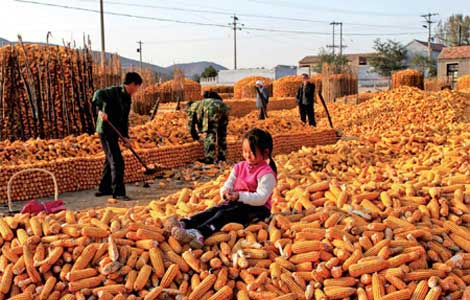Society
Poverty, ethnic differences fuel chaos
Updated: 2011-08-09 07:46
By Zhang Haizhou (China Daily)

LONDON - As violence spread across the British capital in a second night of looting and chaos in the northern London suburb Tottenham, people began to ask why.
A list of causes, including high unemployment, spending cuts amid Britain's sluggish economic recovery, cultural or ethnical differences and a poor relationship between youth and police, have been picked up by local media and analysts.
Take Haringey, the borough in which Tottenham is situated. With a population of 225,500, it is listed as the fourth-most-deprived borough in London and the 13th-most in the country.
About 55 percent of Haringey residents are among some of the most economically deprived in Britain, according to the borough's official statistics.
Lambeth, home borough of Brixton, has a similar situation. The 2007 Indices of Multiple Deprivation places it as the fifth-most-deprived borough in London and 19th in England.
In Tottenham, the core of the borough of Haringey, more than 10,000 people claim Jobseeker's Allowance, an unemployment benefit. Recent government statistics show each registered job opening in Tottenham draws 54 applicants.
Despite a small decline in reported crime in the year to June 2011, compared with the previous 12 months, Haringey saw more burglaries and an alarming rise in robberies of individuals - an increase from 884 offenses to 1,204.
Eight of Haringey's 13 youth clubs were closed because of spending cuts, and reductions in community police officers are soon to come, the Guardian reported.
Edmonton, just across the borough border in Enfield, has become grimly associated with fatal stabbings of teenagers in recent years.
"There is every indication, as unemployment climbs and as cuts are made in youth clubs and other services, that the sense of alienation will burgeon. Crime figures have been climbing again," the Guardian said.
But economic conditions alone cannot explain what has been happening in London the past two nights.
"The Tottenham riot has rekindled memories of the wave of unrest which swept through Britain's cities in the 1980s," the Telegraph wrote.
In addition to a recession and spending cuts, the newspaper cited "poor relations between the black community and police" as part of the backdrop against which violence erupted in Bristol, Birmingham, Manchester, Liverpool as well as Brixton and Broadwater Farm in London in the 1980s.
Haringey and Lambeth are highly multicultural and multi-ethnical.
Roughly 48.7 percent of Haringey residents belong to non-white British ethnic groups, a higher percentage than in both London as a whole (40.2 percent) and England and Wales (13 percent), according to official statistics.
Thirty-eight percent of Lambeth's 272,000 residents have ethnic minority backgrounds, and 50 percent are white British. Over 130 languages are spoken in the borough.
The police were accused of "institutional racism" for their handling of the 1980s riots and calls were made for sweeping changes in how the police department was run, including a rapid increase in the number of black and Asian recruits.
In recent years, it has been assumed that "the mutual antipathy between police and the black community was a relic of the 1980s".
"Events in Tottenham may suggest that such optimism may yet prove to be premature," the Telegraph reported.
But residents say that the weekend's riots in Tottenham have little to do with cultural or ethnical anxieties.
"Race may have a little part to play, but there are other issues in there as well ... It's young people and the police, but not a black and white thing at all," Norma Jones, 48, who works in human resources in Tottenham, said on Sunday.
While the police have condemned the rioters, most of whom are young people, many residents blame the police for their mishandling of ties with youth in these areas.
"There are still areas in Britain where people or communities have a very difficult relationship with the police," said Max Wind-Cowie, head of the progressive conservatism project at London-based research institute Demos.
"There are a small number of people who want no constraints on their behavior, and this isn't about social or economic disempowerment. This is a section of the community that resents the police policing them," he said.
China Daily
E-paper

My Chinese Valentine
Local businesses are cashing in on a traditional love story involving a cow herder and a goddess
Outdoor success
Lifting the veil
Allure of mystery
Specials

Sowing the seeds of doubt
The presence in China of multinationals such as Monsanto and Pioneer is sparking controversy

Lifting the veil
Beijing's Palace Museum, also known as the Forbidden City, is steeped in history, dreams and tears, which are perfectly reflected in design.

Beer we go
Early numbers not so robust for Beijing's first international beer festival
